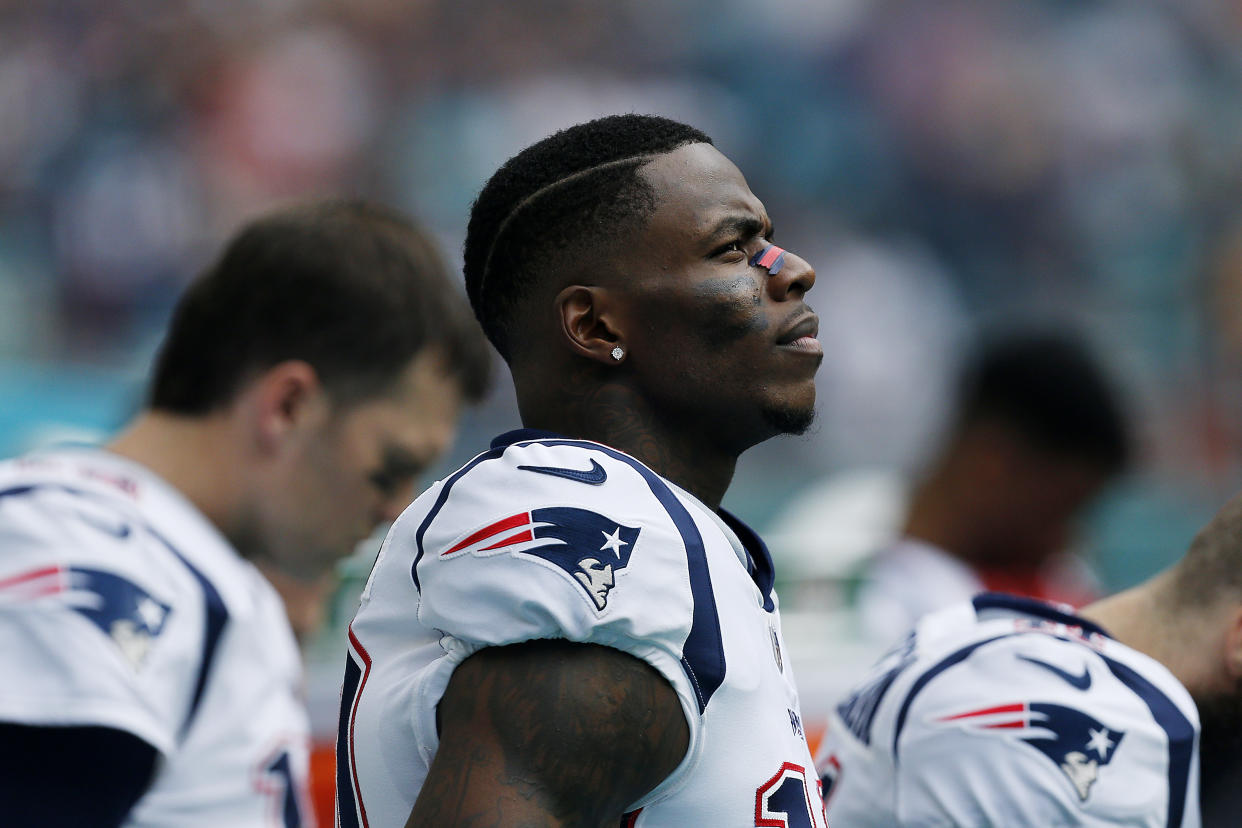New England Patriots' Josh Gordon to take 'mental health break.' Here's why he's not the only elite athlete to need one.

New England Patriots’ player Josh Gordon made a big announcement on Twitter Thursday: He’s taking a break from football to focus on his mental health.
“I take my mental health very seriously at this point to ensure I remain able to perform at the highest level,” he wrote in the Twitter post. “I have recently felt like I could have a better grasp on things mentally. With that said, I will be stepping away from the football field for a bit to focus on my mental health.” Gordon then thanked Patriots head coach Bill Belichik, team owner Robert Kraft and the Patriots organization.
— Flash Gordon (@JOSH_GORDONXII) December 20, 2018
The Patriots released a statement of their own on Twitter soon after:
Statement from the New England Patriots on Josh Gordon: pic.twitter.com/tXmXrXVrJL
— New England Patriots (@Patriots) December 20, 2018
According to ESPN, Gordon is facing a possible suspension for violating the terms of his conditional reinstatement under the NFL’s drug policy. (He was suspended for 20 games back in 2015 after receiving a substance abuse violation — something he also struggled with in 2013 and 2014).
Mental health struggles aren’t discussed a lot among elite athletes, but more are starting to open up about their personal experience. NBA star Kevin Love wrote an essay for The Players’ Tribune in March about his experience with panic attacks and therapy. “Everyone is going through something we can’t see,” he wrote. Serena Williams has also discussed struggling with anxiety. “When I’m too anxious, I lose matches,” she told Vogue in February.
It’s easy to think elite athletes have it all, but they can be especially prone to mental health issues, Lily Brown, PhD, an assistant professor of psychology in psychiatry at the Center for the Treatment and Study of Anxiety at the University of Pennsylvania’s Perelman School of Medicine, tells Yahoo Lifestyle. “In order to obtain a position in a pro league, they need to undergo a tremendous amount of work and likely have perfectionist traits,” she says. “In order for someone to maintain a high level of performance, they need to continue to maintain these high and potentially unreasonable expectations around not just physical health and fitness, but emotional health and fitness. That’s really hard.”
And, if they had untreated issues with substance abuse, anxiety or depression before they went pro, those problems don’t just magically go away.
“It’s not all glitz and glamour,” Stephen Graef, PhD, a sports psychologist at the Ohio State University Wexner Medical Center, tells Yahoo Lifestyle. “You’re under a microscope, and the pressure associated with that can get to people.” If someone is abusing substances, that can be hard on their bodies, which can contribute to ongoing stress, he says, “and that can lead to anxiety and depression.”
These athletes can also face regular concerns about being cut from the team or having their playing time diminished, even if they’re stars. “That’s incredibly stressful,” Brown says.
Treatment for this is individual, but “a big part is helping to increase an individual’s stress tolerance and tolerance for unpredictability and uncertainty,” Brown says. That may mean gradually exposing the athlete to situations that stir up anxiety, and showing them that they can make it through. If it’s performance-related, that may mean they regularly practice in a stadium to get comfortable with the environment, Brown says. If they’re stressed about getting cut, practicing mindfulness and increasing awareness of thoughts and feelings can help, she says, adding, “That can bring an understanding of how internal sensations like anxiety dictate how you behave in a given moment.”
Adding regular, healthy relaxation strategies to the mix is also crucial, Graef says, as is doing what he calls “diversifying your life portfolio.” That may mean investing time and energy into other areas of your life than your sport. “If 100 percent of your life is wrapped up in a sport, any issues you experience will be crushing,” he says.
Whether or not a break may be helpful is highly individual. “It can be complicated,” Graef says. “If you’re finding a lot of joy in your sport and then you take a break, it can become problematic.” It’s also not a luxury all elite athletes can have. “If you’re a rookie and you decide to take a break, good luck,” Graef says. “There go your dreams.”
Overall, athletes need to try hard to make time for self-care. Says Brown, “Often, practicing self-care along the way will make you more resilient in the face of pressure, and prevent you from needing to take a step back.”
Read more from Yahoo Lifestyle:
NFL cheerleader claims discrimination after being fired for posting pic of herself in a one-piece
NBA dancers reveal decades-long culture of ‘brainwashing,’ unfair pay and eating disorders
Follow us on Instagram, Facebook and Twitter for nonstop inspiration delivered fresh to your feed, every day.

